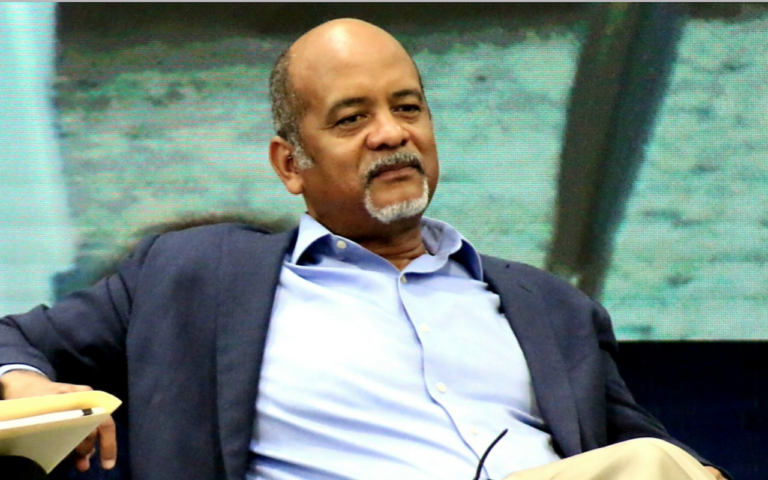
Private sector leaders say they would not be surprised if the Mia Mottley administration enters a new International Monetary Fund (IMF) programme when the current one expires in about six months’ time.
Chairman of the Barbados Chamber of Commerce and Industry (BCCI) Economic Advisory Committee Christopher Sambrano said that given the continued economic, environmental and structural challenges facing the economy, another IMF programme was likely.
“The Government of Barbados would need to enter into a new programme given the setbacks/headwinds presented by COVID, the [La Soufriere] volcanic disruption, a hurricane and now the war between Ukraine and Russia. Our fundamentals are not yet within acceptable benchmarks,” he told Barbados TODAY.
“They would not be able at this point to enter the capital markets and get reasonable interest rates. They still need the benefit of access to low-cost funding and would need continued support as they seek to navigate the current environment and fund the ongoing deficit. While I believe we are on our way to a sustainable path, we are not yet there and significant structural changes are still required,” Sambrano added.
During her budgetary proposal presentation on Monday, Prime Minister Mottley indicated that no decision had yet been taken on whether Barbados would enter into a new programme with the IMF.
However, she gave her clearest indication yet that she was leaning more towards continued IMF support for the Barbados Economic Recovery and Transformation (BERT) plan, pointing to the cheap rate of finance which the island has been able to access from being in the current four-year programme, which started in October 2018.
“The truth is, we have not yet made any decisions as to where we are going with the IMF programme that comes to an end this year. But suffice to say that we are now in the stage of conducting discussions locally and internationally to see what our best options are, conscious that we are about to see an increase in interest rates across the world, and conscious that the funds from the IMF are still the cheapest in town; but more than that, they unlock other expenditure in the development institutions that we have been able to unlock over the course of the last few years,” said Mottley.
“This is what we face as a nation and I say to you that whatever decision it is, the conversations will not be kept in private but that we will have full conversations with the Social Partnership and whatever decision we make will be after full consultation locally, regionally and internationally,” she promised.
President of the Barbados Private Sector Association Trisha Tannis agreed with Sambrano that another IMF programme is likely.
“The Prime Minister has seemingly left the door open to the possibility of an extension and so we would not be surprised if there is an extension, or a renegotiation of the fiscal performance given the impact of the geopolitical instability on the economy and the likely negative impact on the initial growth trajectory,” she told Barbados TODAY.
“Indeed, the IMF has already signalled that it would be lowering its growth expectations generally. We, therefore, expect that there will be flexibility on the expectations of the fiscal performance over the next 12 months.”
In his assessment, Professor Winston Moore, Deputy Principal and Professor of Economics at the UWI, Cave Hill Campus, agreed that being in an IMF programme “lends credibility to your fiscal adjustment efforts and it opens the doors for other lenders”.
“One of the reasons we were able to borrow from donors such as the Inter-American Development Bank and the Caribbean Development Bank was that we had a credible programme of fiscal consolidation monitored and supported by the IMF,” said Professor Moore.
“Given that the COVID-19 pandemic would have negatively impacted on some of our goals for fiscal consolidation since 2020, it seems to make sense to continue our relationship with the IMF. This will add credibility to our BERT programme and ensure that we continue to have access to international capital markets to finance investment and growth-enhancing projects.”
While public debt declined from 176.3 per cent in 2018 to around 116.1 per cent in 2020, it has started to rise again, reaching around 136.3 per cent for the current financial year.
However, Mottley said Government was still committed to achieving debt at only 60 per cent of GDP by 2035/2036.
The fiscal target of the primary surplus has changed several times over the past two years as a result of the COVID-19 pandemic and other challenges which resulted in Government spending more and raking in less revenue.
While there was a primary balance of six per cent of GDP in financial year 2019/2020, there was a primary deficit of one per cent at the end of the 2020/2021 financial year. The fiscal balance moved from a surplus of $384.50 million to a deficit of $429.60 million over the same period.
marlonmadden@barbadostoday.bb
The post Further IMF programme likely, predict business leaders appeared first on Barbados Today.